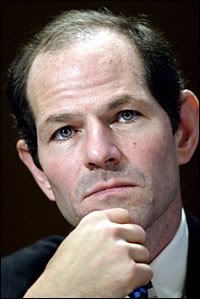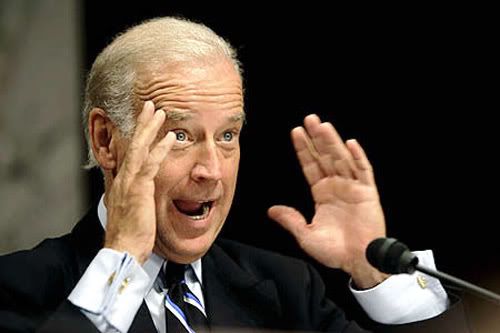 An office colleague and I have engaged in an ongoing debate about the merits of political bosses from the pre-Watergate era over the current system. We’ll call him Buck. Buck’s a generation older than me, fought in Vietnam and describes himself as a “political agnostic.”
An office colleague and I have engaged in an ongoing debate about the merits of political bosses from the pre-Watergate era over the current system. We’ll call him Buck. Buck’s a generation older than me, fought in Vietnam and describes himself as a “political agnostic.”He’s not a liberal and politically incorrect is an understatement to describe Buck. Buck is a foul-mouthed renaissance man and delightfully entertaining. He would make a terrific blogger! Buck is vehemently opposed to the policies of the Bush Administration and nostalgic for the era of smoke filled rooms.
As an unapologetic liberal, I champion an open process that elevates people over elites selecting our leaders. Buck considers me an impractical idealist and argues that during the era of party bosses an unfit person such as George W. Bush could never have become president. I counter that elites from such an era were overly devoted to the status quo. Buck retorts that it took smoke filled room masters such as LBJ to pass civil rights legislation and Nixon to open diplomatic relations with China. I return fire and indict both presidents as warmongers who subverted the Constitution. And we’ll keep going back and forth.
As much as it pains me to admit it, I’m forced to acknowledge the era of smoke filled rooms was superior to the system we have now. At least candidates for president were vetted for their intelligence and capability to some degree in those days. Now it’s all about style, sound bites and raising money to compete in an obscene frontloaded primary schedule. Think of it this way: does anyone believe Harry Truman could’ve raised enough money to compete with Hillary Clinton and Barack Obama under the current system? That said, I do not advocate a return to the era of party bosses selecting presidential nominees while smoking cigars.
Instead, I’d like to see a grass roots movement pressuring both parties to adopt the National Association of Secretaries of State (NASS) proposal promoting four regional primaries in 2012. Frankly, I’m more passionate about that cause then the current crop of presidential candidates in either party and believe it’s necessary for our democracy’s salvation.
The concept proposed by NASS is rather simple. Tradition is respected and both Iowa and New Hampshire are allowed to go one-two as before. The remaining forty-eight states would participate in four regional primaries. Every four years the order these primaries are held will rotate.
NASS’s proposal offers numerous benefits. First and foremost, every state has an opportunity to influence the outcome. As a New Yorker, I’ve long resented how my home state with its large population and diversity has mattered so little in selecting major party nominees for the White House. And if New York moves up their primary date to increase its influence and benefit Guiliani and Clinton, the process will be debased even more. A rotating regional primary schedule eliminates the need for states to move up on the calendar right behind Iowa and New Hampshire.
Another benefit is more time for candidates to be properly vetted and compete on a platform of ideas. The compressed schedule we currently have discourages exchanges about substance and instead facilitates “horserace” coverage. With both parties effectively selecting their nominees in February 2008, substantive debates about important issues won’t take place when voters are paying attention. The candidates will be debating at forums for contests deciding their party’s nomination in early 2008 this year.
Regional primaries will both shorten and lengthen the presidential campaign. Currently, the campaign to become a major party nominee starts a year too early and ends too quickly. NASS’s proposal will allow candidates to begin campaigning in the latter part of 2011. With the primary struggles extended, there will be more time to scrutinize policy distinctions among the candidates and assess their respective temperaments under pressure.
Most importantly, winning won’t be contingent upon which candidate can purchase the most airtime in a bloc of large states. Suppose New York joins New Jersey and California in moving its primary date up to February 5th? That means a candidate would have to get their message out through aid buys in the three biggest media markets in the country on the same day. What chance would a worthy underdog have?
I had hoped Russ Feingold would seek higher office. I’m now relieved he didn’t. This champion of public financing would’ve had no choice but to opt out of the public finance system to have any hope. Internet/netroots fundraising by itself would not have been enough to keep him competitive and I doubt he could've tapped into other donors sufficiently.
Finally, I believe adopting NASS’s proposals would generate more interest among the public and increase voter turnout. As Howard Dean has previously said, he’d rather have 100% turnout and lose because ultimately it means a healthier democracy.
While my preference is for both parties to participate, I don’t believe Republicans could be persuaded to make the first leap. Hence, I’m hoping activists inside the Democratic Party can successfully pressure the donkeys to give in. Why not pressure Democratic candidates for president this year to adopt NASS’s proposals in 2012 should they become their party’s nominee? Hell, lets make it part of the platform.
Democratic Party insiders shiver at the thought of real competition. They’re under the misconception that the strongest party unifies behind a candidate in February. In their timid hearts, Democrats still competing while Republicans rally behind a nominee means automatic defeat.
I say just the opposite is true. Let’s put capitalism in our politics and embrace competition. If Democrats adopt these rules and the GOP doesn’t, the public will pay far more attention to the Democrats and be more inclined to vote for their nominee in November. Furthermore, Democrats will become more identified with electoral reform and perceived as the party that believes in elevating the people's voice over corporate insiders . It would demonstrate a powerful contrast with the Republicans and might further expand the Democratic Party base among independents.
If I’m right, the GOP will be compelled to follow in 2016 out of self-interest to remain competitive. Buck will no doubt accuse me of naïve idealism. And I’ll counter that idealism is required to salvage our democracy. For damn sure our salvation will not come from obsessing over whether Obama or Clinton have the upper hand for Hollywood’s money. Let's start Project 2012.














